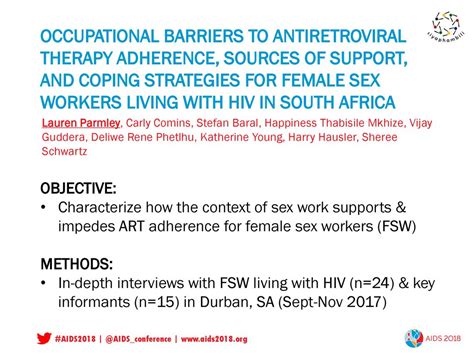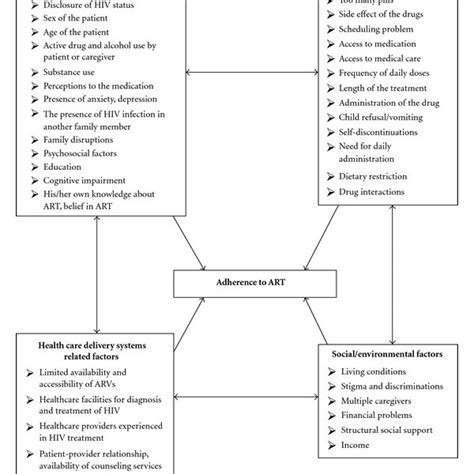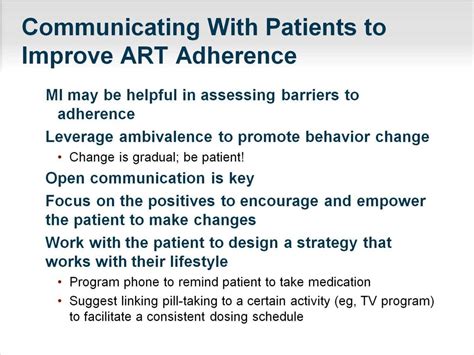Adherence to Antiretroviral Therapy Among Female Sex Workers

Challenges in ART Adherence

Adherence to antiretroviral therapy (ART) among female sex workers is a critical issue in global health. Recent studies have highlighted the challenges these women face in maintaining consistent treatment, which is essential for managing HIV and preventing its transmission. One study from 2025, cited by K. Yakubu, explores the relationship between past condom use and ART adherence. It emphasizes the need for tailored interventions to address the unique barriers faced by this population.
Intersections of Drug Use and Sexual Health
Similarly, research by V. Lipovsek (2010) discusses the intersections of drug use and sexual health, underscoring the importance of integrated care. Pre-exposure prophylaxis (PrEP) has emerged as a potential game-changer for HIV prevention among female sex workers in West Africa. However, effective implementation remains a challenge due to societal, economic, and structural factors.
Improving ART Adherence

Education and access to resources are key to improving outcomes. Other studies, such as those by M. Pickles (2013) and A. Islam (2012), provide insights into perceptions about HIV and condoms, as well as policy decisions affecting primary care. These works highlight the complexity of improving adherence and the need for multifaceted approaches.
Conclusion and Recommendations
In conclusion, addressing ART adherence among female sex workers requires a combination of education, access to healthcare, and policy support. Continued research and advocacy are essential to ensuring these women receive the care they need.
*TAGS* – Antiretroviral therapy, ART adherence, HIV prevention, female sex workers, global health, PrEP, healthcare access, policy support.